So, you’ve decided to retire, and Chiang Mai has caught your eye. Let's see why this Northern Thai city can become your ideal retirement spot and what you need to keep in mind if you are moving here.
Main takeaways:
- Chiang Mai is an affordable and well-developed city with a sizable expat population.
- Although more peaceful than Bangkok, it’s still a sprawling city with all the perks and downsides of urban living.
- A great destination for mountain lovers as it is surrounded by lovely hills and mountains.
- It is not very touristy as the nearest beach is a 1.5-hour flight away.
- The burning season is the biggest drawback of living in Chiang Mai.
Secure Peace of Mind with Best-Value International Health Coverage
International Citizens Insurance provide free, no-obligation quotes from the leading international health insurance providers with plans tailored to meet your needs. Trusted by thousands of expats worldwide.
Chiang Mai overview
Chiang Mai is not a coastal location, so you can enjoy the exotic charm of Northern Thailand in a well-developed city that isn't overrun by tourists who usually flock to beach destinations.
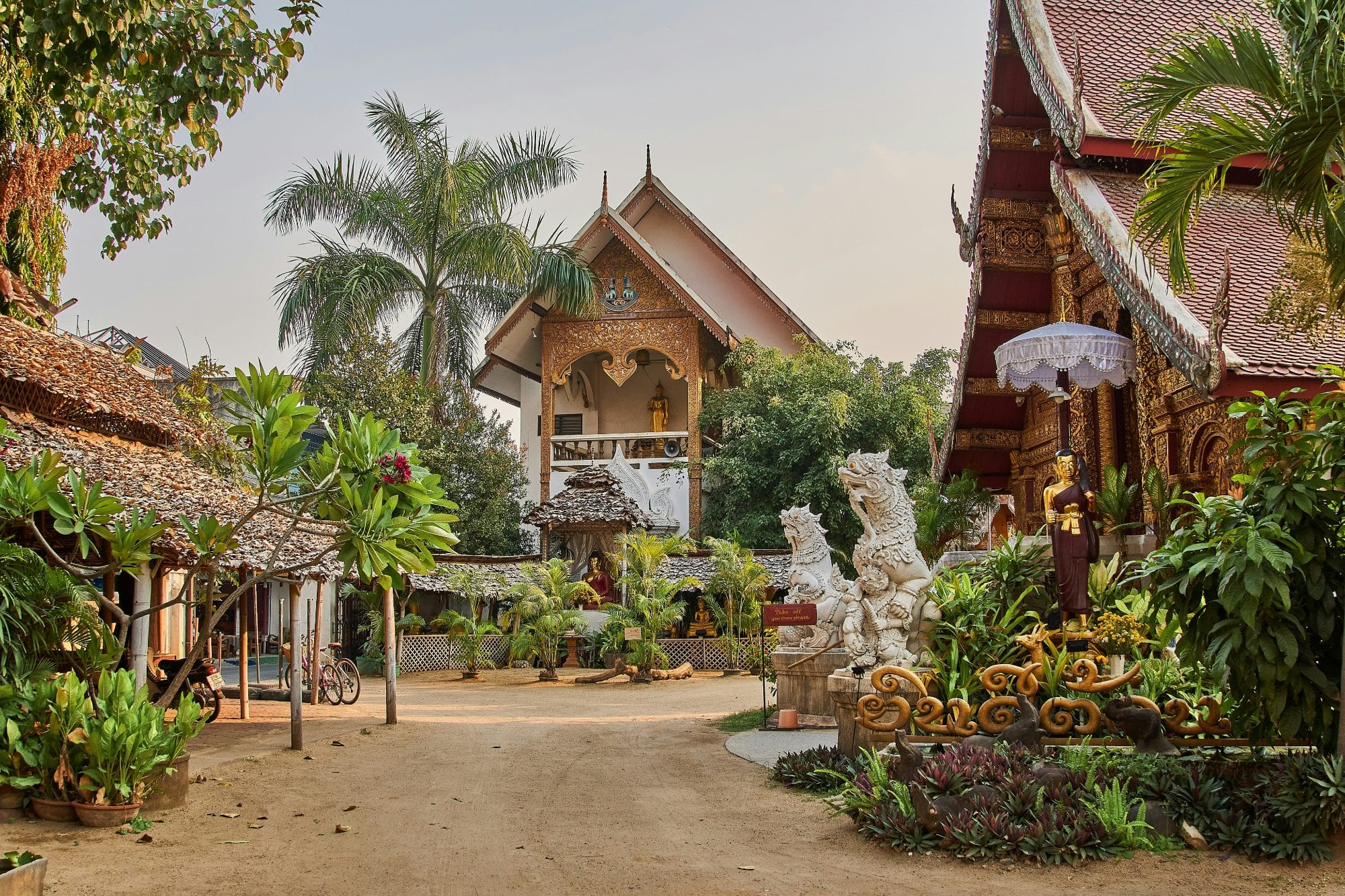
Chiang Mai isn’t Bangkok, either. It’s calmer, cooler, and infinitely more cultured.
The city is cradled by mountains, with a history stretching back over 700 years. Temples and ancient ruins are abundant.
The weather is typical for a tropical climate (which means high humidity, so get ready to sweat), the locals are friendly, the food is to die for, and the expat community is huge and diverse.
In short, if you want a retirement that’s rich in culture, beauty, and warmth, Chiang Mai is your place. It’s affordable, it’s fascinating, and it’s waiting for you. What’s not to like?
Visas and legalities
First thing first - how can you settle down legally? To retire in Chiang Mai, you have a few visa options:
- Non-Immigrant O-A Visa: For those aged 50 and over, valid for one year and renewable annually.
- Non-Immigrant O-X Visa: A long-term visa for individuals aged 50 and over, valid for five years and renewable.
- Elite Visa: Provides residency for 5-20 years with a membership fee.
Each visa has specific financial requirements and documentation. For detailed information on each visa type and the application process, refer to our Thailand Visas and Residency Guide.
Getting to Chiang Mai
Chiang Mai International Airport is your main gateway. Flights from Bangkok take about an hour. And if you're coming from further afield, direct flights from places like Singapore, Hong Kong, and Doha make it an international hub in the mountains.
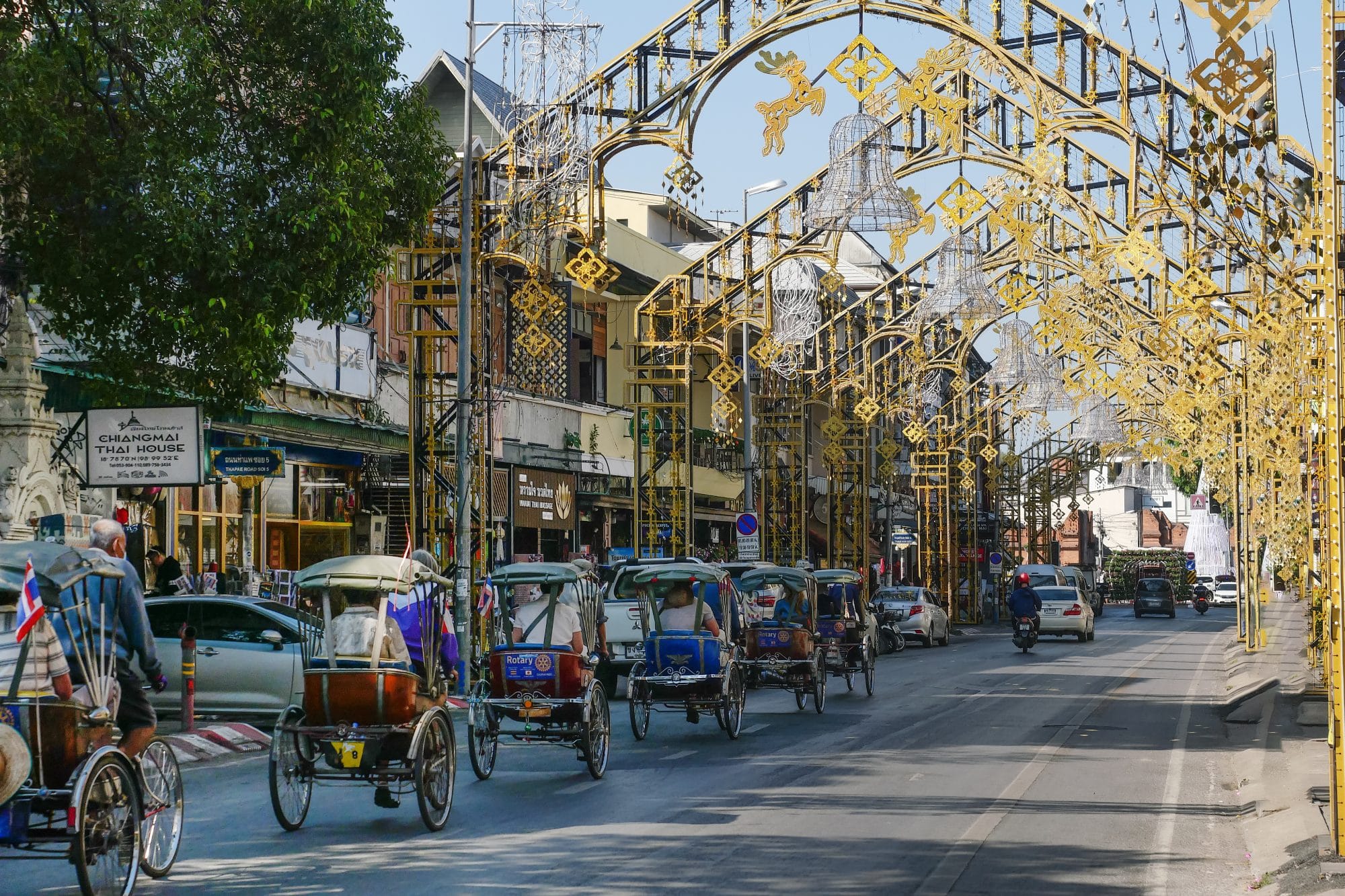
Feeling adventurous? Hop on the overnight train from Bangkok. It takes about 12-15 hours, so bring a good book.
For the road warriors, there are intercity buses - air-conditioned coaches with reclining seats and blankets. The VIP buses take around 10 hours from Bangkok.
Once in Chiang Mai, the whole of Thailand is your playground. Fancy a beach holiday? A quick, direct flight to Phuket, Pattaya, or Krabi, and you’re by the sea in no time.
Cost of living
Chiang Mai is infinitely affordable, and that’s why it is so popular.
In Chiang Mai, you can get a swanky condo perfect for a couple in a great location for a mere $700, dine on exotic Thai cuisine for under $20, and enjoy a big refreshing Chang (Thai lager) for $2.20 each.
Planning entertainment and leisure? Here we go: two cinema tickets - $11, a yoga class for a couple - $16, and a soothing Thai massage will set both of you back just $22.
Want to rent a car and explore the region for a bit? Depending on the season, a snazzy sedan is yours for about $200 a week. Or you can smaller and have a little runner for $120.
Chiang Mai offers all the comforts of Bangkok for half the price and twice the tranquility.
Housing options
The choice of housing options is great - from modern condos and apartments to traditional Thai houses. Expats mostly prefer condos and apartments, as they have all the conveniences of modern living.
Renting
Renting is the preferred choice for many expats due to the ease and affordability, with monthly rents for a good one-bedroom apartment in a nice location ranging from $450 to $700. If you are looking for more luxury, it is possible to find high-end condos with amenities like swimming pools and fitness centers, starting at around $850 per month.
With a budget of $1,000 to $1,700 a month, you’re entering the realm of private villas with pools.
Buying real estate
Foreigners in Thailand face certain restrictions when it comes to buying real estate. Direct ownership of land is not permitted, but there are workarounds such as long-term leases (up to 30 years) and company ownership structures.
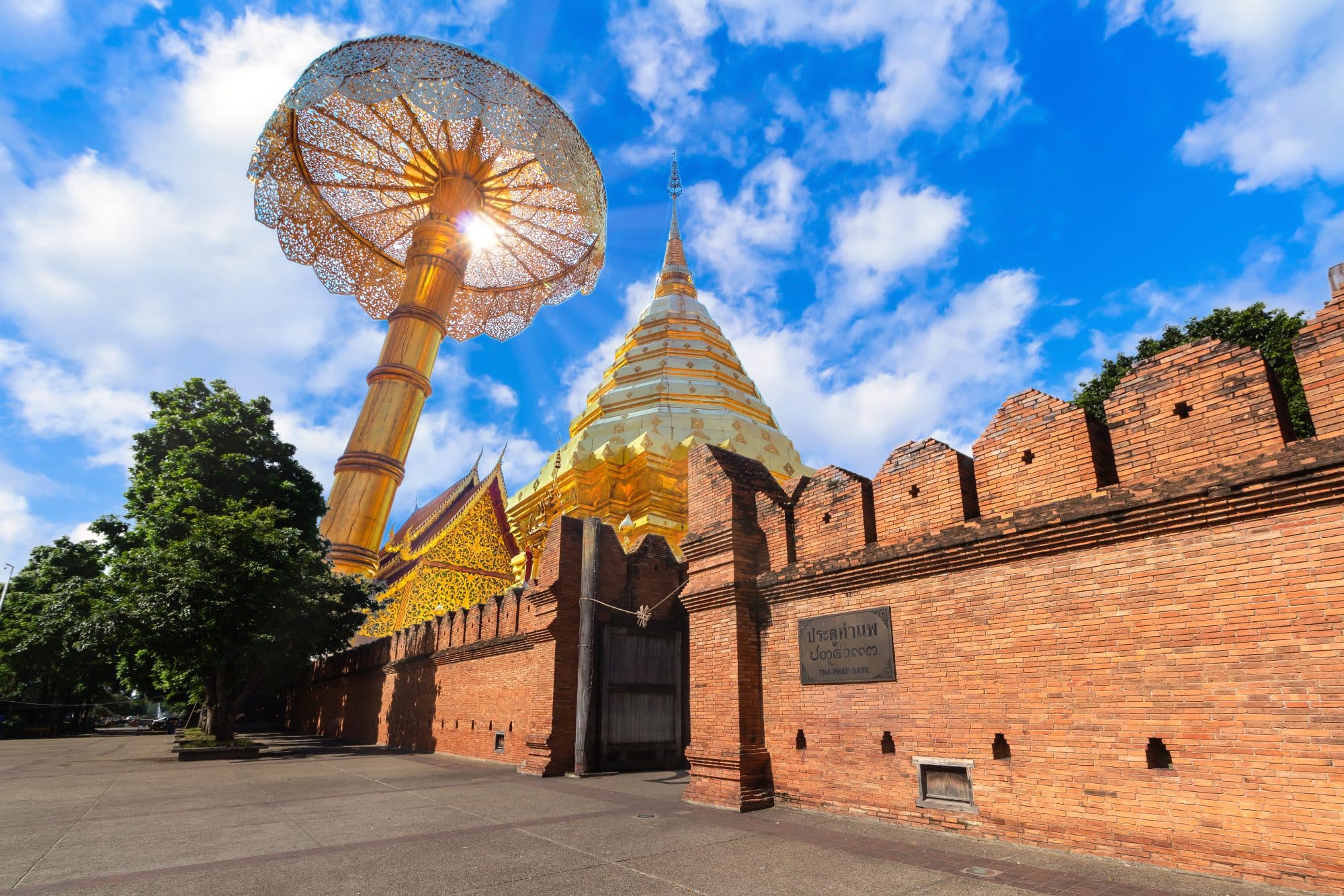
Foreigners can purchase condominiums, provided that no more than 49% of the total floor area of all units in the building is owned by foreigners.
Price-wise, a nice 2-bed condo in a good area can start at around 4,000,000 THB (just under $110,000).
If you are after a house, the median house listing price in Chiang Mai is about 5,400,000 THB ($148,000).
For a detailed breakdown of all the options and legal nuances of buying real estate, check out our comprehensive Moving to Thailand Guide, Real Estate section.
Best neighborhoods
1. Nimmanhaemin (Nimman)
If you're the type who loves to be in the thick of it, Nimman is your playground. This area is the epitome of cool, with trendy cafes, swanky bars, and modern apartments.
It's where the action happens. It might feel a bit too “young” for retirees, but if you are seeking energy and action, this is where you want to be.
Highlights: Just a stone’s throw from Maya Lifestyle Shopping Center, surrounded by more coffee shops than you can shake a stick at, and plenty of dining options.
2. Old City
History buffs, this one's for you. Enclosed by ancient walls, the Old City is full of temples, markets, and traditional guesthouses. It’s lovely and walkable, with interesting side streets, great street food options, and many little local restaurants scattered around.
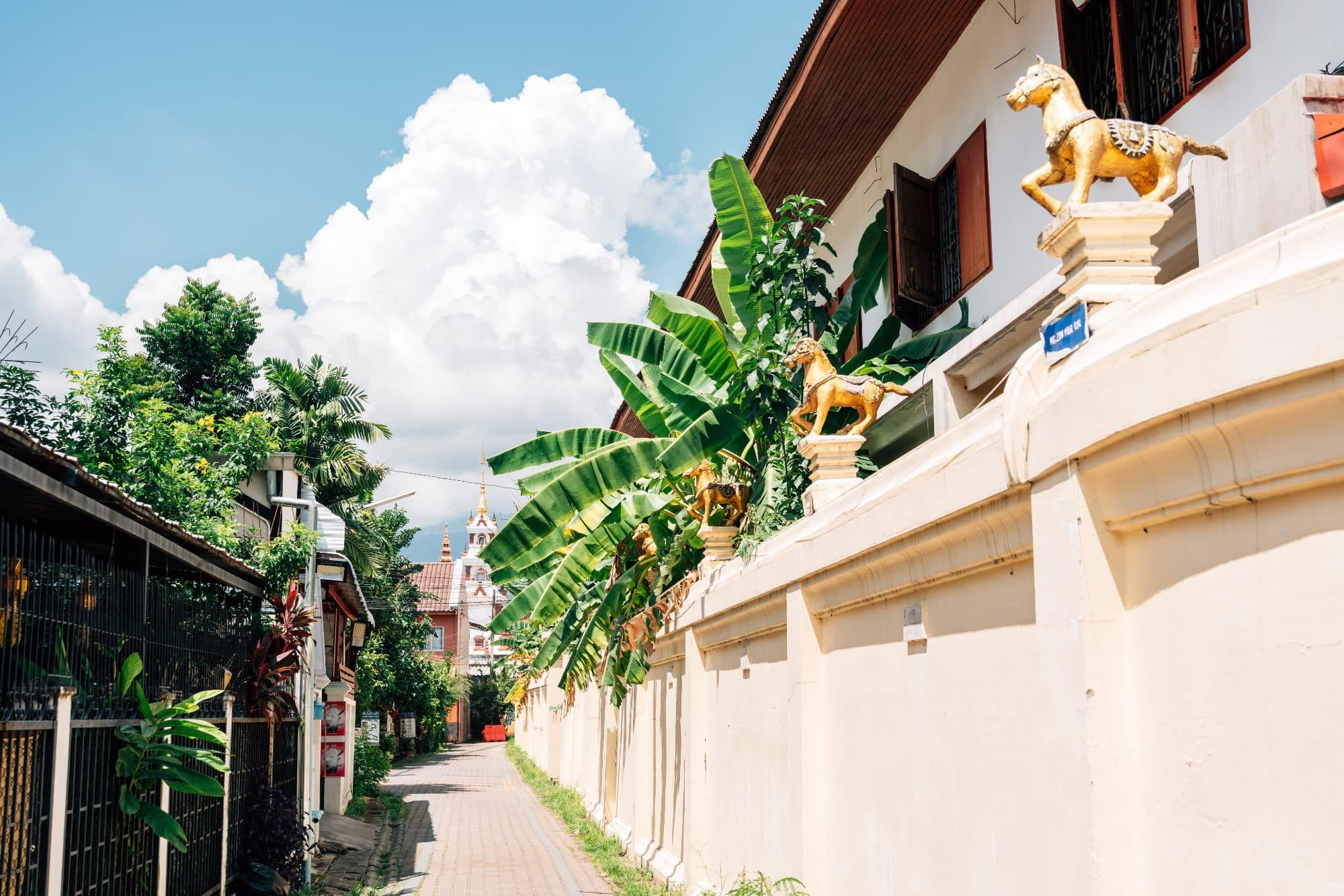
Highlights: Walk to historic sites like Wat Chedi Luang, explore lively local markets, and savor authentic Thai cuisine.
3. Hang Dong
If you prefer a bit more elbow room, Hang Dong offers spacious villas and family homes. It's the suburban dream with a dash of rural charm. Perfect for the quieter, more reflective retiree.
Highlights: Great selection of cafes and restaurants, close to large supermarkets and the adventurous Grand Canyon Water Park. On the downside, you need a car if you want to live here.
4. Santitham
Not quite as frenetic as Nimman but still close to the action, Santitham provides a mix of local and expat living. Reasonably priced rental apartments and a balance of peace and convenience.
Highlights: Local markets at your doorstep, traditional eateries galore, and affordable housing options.
5. Mae Hia
This is a perfect spot for nature lovers. Located near the Royal Park Rajapruek, Mae Hia is your gateway to the great outdoors. Houses and condos abound in this lush, green haven.
Highlights: Right next to the Royal Park, the Chiang Mai Night Safari, and surrounded by picturesque agricultural research centers.
6. Riverside
Fancy living by the water? Riverside is where you can find a rather upmarket living in peace and tranquility. Gorgeous river views, plush condos, and villas, all wrapped up in a serene package.
The streets aren’t jam-packed, and there’s a lot less zooming around from cars and bikes, making everything feel more relaxed along the river. Plus, the place is a shopper’s paradise, with the Anusaran Night Market and the Night Bazaar offering fun late-night shopping every day of the week.
Highlights: Dine at riverside restaurants to live music, do the night shopping, and enjoy the calming ambiance of the Ping River.
Healthcare in Chiang Mai
The city is well-equipped in terms of health facilities. As an expat, you will need valid health insurance or might consider a pay-as-you-go option (which is a bit risky, so we don't recommend it).
Major hospitals such as Chiang Mai Ram Hospital, Bangkok Hospital Chiang Mai, and Lanna Hospital have English-speaking doctors. You can usually make an appointment directly with the hospital online and the appointment team will allocate a necessary specialist doctor.
Health insurance for a couple start between $1,200 to $2,000 a year, depending on your age and how much you fancy being covered.
If you are after international coverage, compare international health insurance options from various providers to find the best deal.
Some hospitals and clinics offer special health packages and promotions where you can bag a complete health check-up or certain well-being procedures at a bargain price. As an example, you can have a complete and thorough 40+ health MOT for under $560 in Bangkok Hospital Chiang Mai.
The hospital also has a Health Promotion and Wellness Center with anti-aging experts and wellness programs for aging city residents.
Public transportation
Let’s talk about your options for navigating Chiang Mai.
It’s a vast and sprawling city, so having some understanding of transportation options can be very handy.
- Buses: Efficient and dirt cheap at 30 THB per ride.
- Songthaews: Red trucks acting as shared taxis, costing about 40 THB. Adventure on wheels.
- Grab: The Thai Uber, offering air-conditioned rides starting at 80 THB.
- Tuk-tuks: A tuk tuk ride usually costs between 40-200 baht. Drivers often try to charge per person, so make sure you haggle and get the price down to a fair rate.
Renting and owning vehicles
- Cars: Rent one for 800-1,200 THB a day, or buy a used one starting at 200,000 THB or even cheaper if you don't mind the age.
- Scooters: You can rent one for 200-300 THB per day or buy a decent used one for under 40,000 THB. Perfect for quick city jaunts if you're brave enough to do so.
Walkability and bike-friendly areas
Chiang Mai is pretty walkable in areas like the Old City.
When it comes to cycling, it’s not that simple. Although some sources on the internet tell you there are more and more bike lanes, the reality is Chiang Mai is not Copenhagen.
Sure, there are some lovely and scenic routes if you’re looking for a leisurely ride. But as a daily means of transport? Well, it’s more of an adrenaline sport. Navigating the chaotic traffic can be quite a hair-raising experience. So, while getting around on two wheels is possible, it’s not for the faint-hearted.
Social life and expat community
Let’s start with the Chiang Mai Expats Club. The club hosts regular meetings, social events, and activities where you can rub shoulders with other expats over a beer or two.
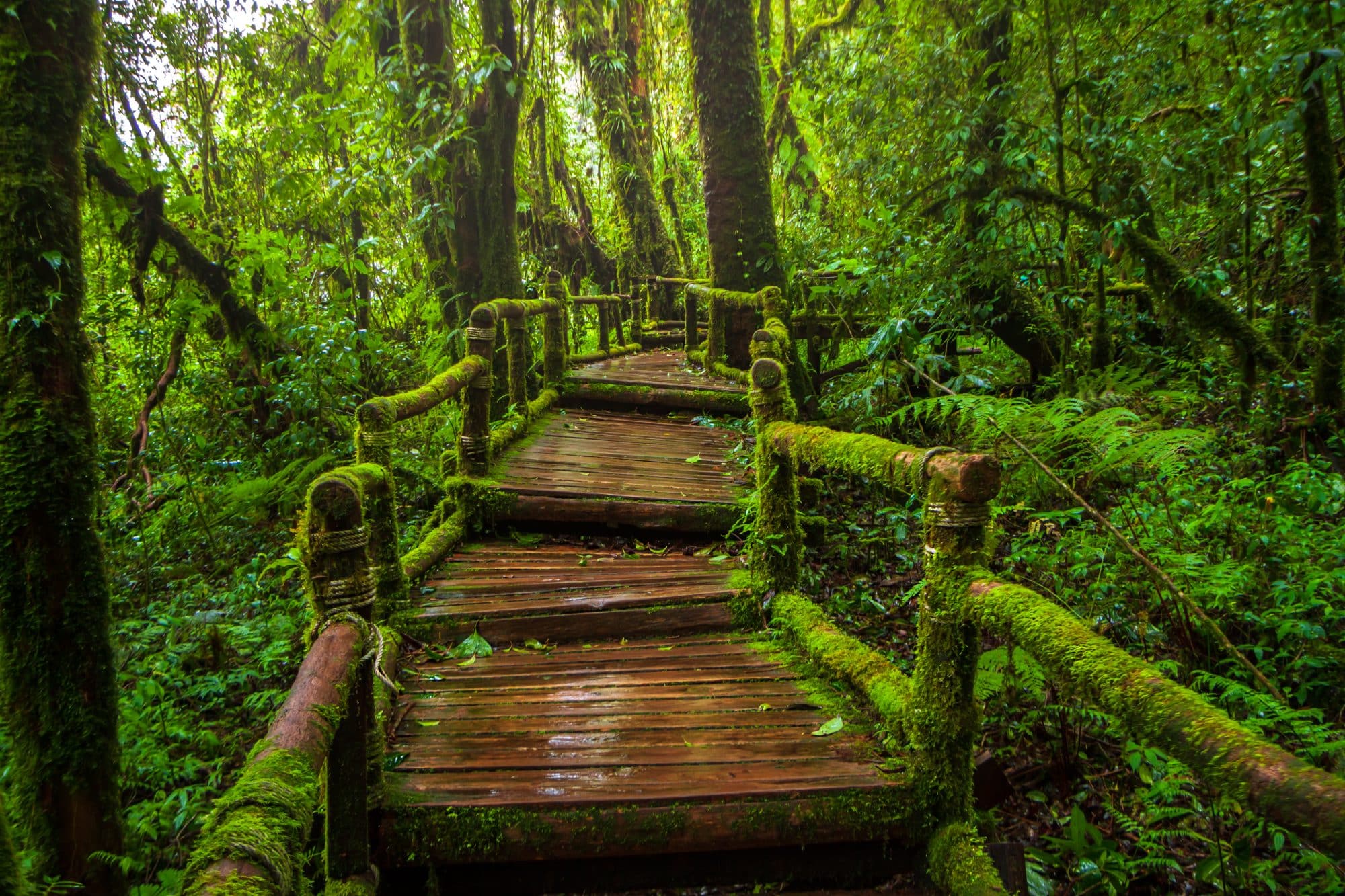
For something a bit more laid-back and spontaneous, head over to the Nimman Social cafe and bar in the Nimmanhaemin area. It’s a popular place for expats to hang out, so the chance of meeting someone and starting a conversation is huge.
If you’re the adventurous type, the Chiang Mai Hiking Group is your go-to. You can meet people while exploring the stunning landscapes around the city.
For the artsy crowd, there’s the Chiang Mai Photography Club. Swap tips, show off your snaps, and bond over your shared love of capturing the perfect shot.
And don’t forget the local markets. The Sunday Night Market and the Saturday Walking Street aren’t just for shopping. They’re bustling social hubs where you can meet new people while you haggle over trinkets and sample street food.
Chiang Mai burning season
The burning season in Chiang Mai is the greatest downside of living here. The burning season typically occurs from late February to April, when farmers in the surrounding regions burn their fields to prepare for the next planting season. This is the time of year when the city becomes less of a tropical paradise and more of a smoky cauldron.
During this time, air quality in Chiang Mai takes a nosedive, often reaching hazardous levels. The smoke from the agricultural fires drifts into the city, creating a thick haze that hangs over everything like an unwanted guest.
Affected areas
The areas most affected by the burning season are generally the outskirts of the city and the nearby mountains. However, the smoke doesn't discriminate—it blankets the entire city, making even central areas like the Old City and Nimmanhaemin feel like you’re living inside a barbecue smoker.
How to deal with it
So, what do the savvy expats do? They flee, of course! Many heads to coastal areas like Phuket, Pattaya, Koh Samui, or Krabi, where the air is clearer and the beaches are calling. Remember, it’s a short, direct flight from Chiang Mai, not an arduous journey at all.
Others might escape to neighboring countries such as Vietnam or Malaysia for a short break until the air quality improves.
If staying put is unavoidable, buying a good air purifier for your home is essential. Wearing masks when outside can help reduce exposure to the smoky air.
Many expats also spend time in places with good air conditioning and filtration, like malls and cinemas, to avoid the worst of the pollution.
Final thoughts on living in Chiang Mai
So, there you have it – Chiang Mai. A perfect city if you’re not a beach lover and want to escape the tourist-packed shores. Here, you can enjoy the beauty of the mountains and the charm of the city without the endless crowds vying for a spot on the sand.
You get the serene temples, the bustling markets, and the trendy cafes all in one place. And let's not forget the cost of living – it’s laughably low compared to the West.
The healthcare is great, there are plenty of options to socialize and be active, and the travel connections offer an easy escape during the unpleasant burning season.
It has all the essential ingredients to become your perfect retirement destination. Give it a try and see for yourself!
Other locations in Thailand to consider:
- 10 Best Neighborhoods To Live In Bangkok
- Living In Krabi
- Living In Koh Samui
- 6 Best Neighborhoods To Live In Pattaya
You might find useful:
Secure Peace of Mind with Best-Value International Health Coverage
International Citizens Insurance provide free, no-obligation quotes from the leading international health insurance providers with plans tailored to meet your needs. Trusted by thousands of expats worldwide.










